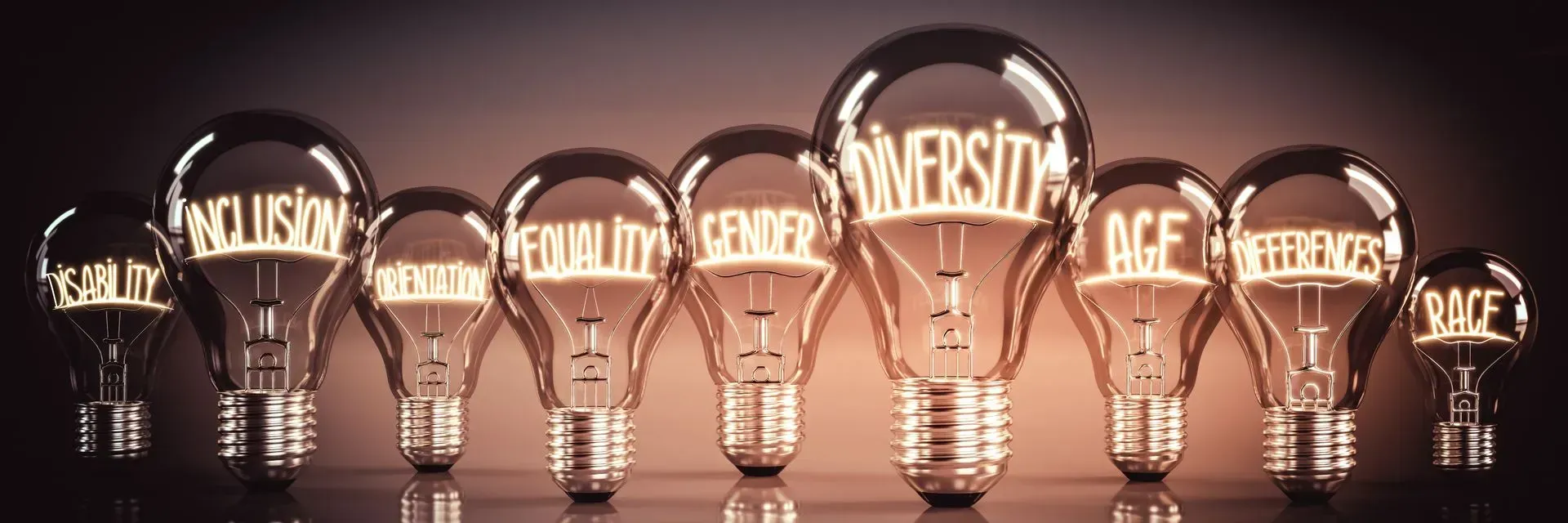Benefits of a diverse workplace

Benefits of a diverse workplace
Diversity in the workplace has become increasingly more important over the past decade, and with employers now dedicating entire teams to ensuring that their workforce, policies, systems and facilities are all considered with a diverse lens, it is no wonder that diverse workplaces carry many benefits not only for the workers, but also for the companies striving for organisational change.
According to Diversity Council Australia, 75% of Australian workers “support or strongly support their organisation taking action to create a workplace which is diverse and inclusive,” a statistic which includes the sentiments of people who are not from particularly diverse backgrounds themselves.
Although some key focus areas in the diversity space have gained the attention of the broader public, such as gender, First Nations and culturally and linguistically diverse people, people with disabilities and those who identify as LGBTIQ+, there are countless diverse demographics which can make up a workforce, including age, carer status, neurodivergence, socio economic status, educational background and geographic location.
People from any range of diverse backgrounds can help contribute to an improved workplace culture which is energetic, progressive and productive - here's how.
1. Employee engagement
Disengaged employees are unhappy employees, and through a combination of less people attending physical office spaces, a lack of social interaction and online meeting fatigue, engagement can rapidly decline.
Workplaces and teams which are made up of people from diverse backgrounds are proven to help drive employee engagement as curious minds seek to learn more about their peers and social dynamics adapt through a range of contributions and experiences.
Networks of diverse people can also teach their colleagues about their lived experience through celebrations, acknowledgement and education on relevant occasions such as National Reconciliation Week, Pride Month or International Day of Disabled Persons, helping to drive engagement with other colleagues in a new and inclusive way.
2. Innovation and creativity
With diverse teams comes diversity of thought, something which encourages innovation, creativity and productivity. When people share their lived experience amongst their teams and the broader organisation, their fresh ideas can help to update and enhance the current product and service offering, enabling more of the population to see themselves and the solutions they require in whatever the organisation is producing for its market.
3. Improved reputation
Organisations with their own diversity and inclusion strategies will often look to work with other likeminded organisations. Companies which are particularly advanced in this space will even implement policies mandating that they must only work with other diverse and inclusive companies. Therefore, if an organisation is not perceived to be diverse or it cannot prove it genuinely cares about and strives for inclusion, there can be a direct impact on revenue.
When you look at high profile organisations in Australia it is evident that they prioritise their commitment to diversity. The Big 4 banks, major airlines, supermarkets and even sporting teams all aim to prove their dedication to diversity and inclusion, with most having a portfolio of focus areas bursting at the seams with initiatives, engagement and progress towards the promotion of more diverse workplaces, and also of the amplification of the voices of diverse people in the community.
4. Increased retention rates
Workplaces which foster inclusivity create happier workforces, in turn helping to cut down on attrition. According to Diversity Council Australia’s 2021-2022 Inclusion@Work Index survey, workers in inclusive teams were four times less likely to leave their job in the twelve months to follow.
The same survey shows that people from diverse backgrounds are ten times more likely to experience job satisfaction when working in diverse teams and that they are four times less likely to feel that their mental health is negatively impacted by their work. Alongside the other benefits of diverse workplaces, employers can capitalise on the retention of corporate knowledge and the strong morale and rapport that is built within longstanding teams.
5. High quality candidates
Organisations which offer graduate recruitment programs will usually seek to attract top talent from highly regarded universities. Younger generations are increasingly attune to diversity and are unaccepting of the historical ‘norms’ which existed in organisations formerly led by straight white males. To this end, a diverse workforce can help to attract high quality candidates which in itself will perpetuate diversity in the workforce.
Lateral hires will also try to move to more diverse organisations, particularly if they come from a diverse background(s) themselves and are seeking more inclusivity in their work life, or they are aiming to work for a company which provides opportunities for professional development and progression through the ranks for people from all backgrounds.
Glassdoor’s 2020 Diversity and Inclusion Workplace Survey found that a workplace’s commitment to diversity is an important factor to 76% of employees and job seekers, and that 1 in 3 people will not even consider applying for a role at a workplace if they do not deem that workplace to be diverse. These statistics were particularly profound coming from people with culturally and linguistically diverse backgrounds and from those who identified as LGBTIQA+.
Diverse workplaces have benefits which are multi-faceted; from improving employee wellbeing, reducing turnover and increasing profit margins, to moving the dial and creating safer, more inclusive spaces in the community, we all have something to gain from a commitment to diversity and inclusion at work.
At helpz we are proud to foster a supportive and inclusive workplace. It is important to us that our team members are their authentic selves and work in an environment where everybody is encouraged to grow and develop authentically with the same resources available to mean each team member has equal opportunities.
To help encourage inclusion within our team we work collaboratively, providing opportunity for all staff across the business to contribute to and help set business objectives, inform benefits and structure and explore areas of interest outside of their traditional role remits.
We also offer flexible working so that everyone has the same opportunities, after all we value our staff not just when they are at work but in all areas of their lives – after all we are more than just a job – we want to see everyone grow develop and succeed in everything that makes them, them.
Join the team in 2023 and live your life, everyday.
News & Insights
Check Our Latest Resources







